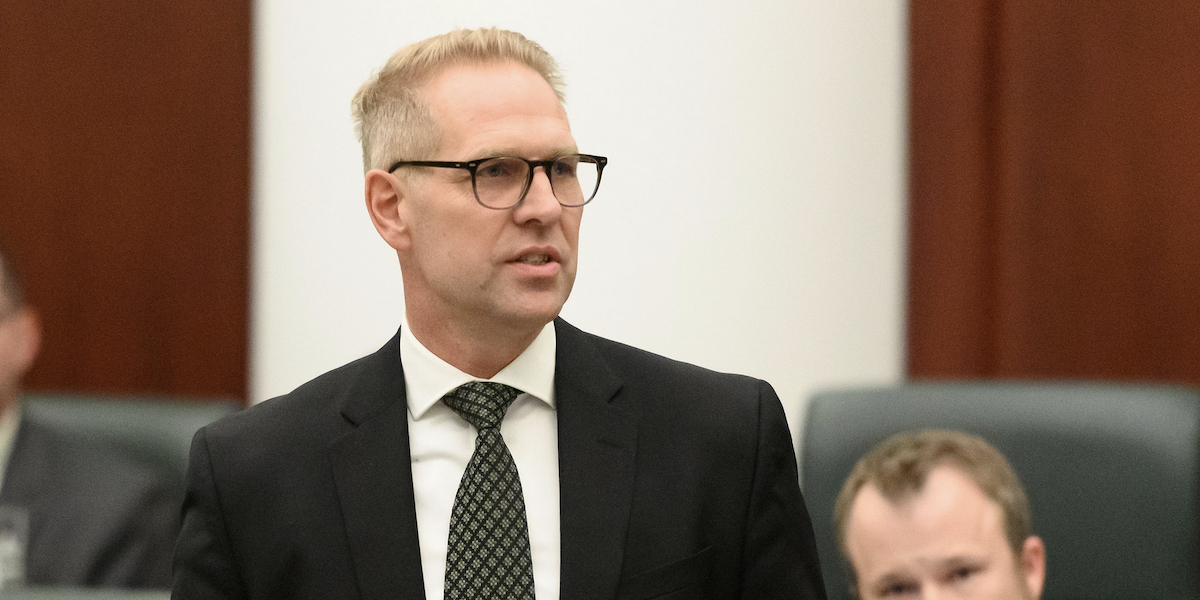It’s no secret that P3s – so-called public-private partnerships – are at best a lousy public investment and at worst a disaster for citizens and taxpayers.
Still, they’re a great way for governments to subsidize big businesses with friends in high places while pretending to prudently manage public funds, so despite their higher costs, lack of transparency and accountability, vulnerability to business failures, and the exaggerated claims of their proponents, they’ve been enduringly popular with so-called conservative governments in Canada.
So it came as a genuine surprise to many of us on Boxing Day when the CBC reported that Alberta Infrastructure Minister Nathan Neudorf had announced the United Conservative Party (UCP) government of Premier Danielle Smith will no longer be using P3s build new schools.
Say what?
After all, it was only in 2019 that then-Premier Jason Kenney, a month after his election victory over the NDP, was promising to aggressively pursue P3s to build infrastructure projects in this province.
“We think in the long run, the way we can get more job-creating infrastructure, to make Alberta’s economy more efficient, is through more public-private partnerships,” Kenney pontificated to reporters.
Former prime minister Stephen Harper’s Conservative federal government, which Kenney served as a senior cabinet minister, loved P3s. In 2009, it even set up a Crown corporation to encourage the use of P3s when federal money was earmarked for local projects.
It is no small irony, I suppose, that when the Liberal Government led by Prime Minister Justin Trudeau that replaced Harper’s Conservatives shut down PPP Canada in 2018, it was infrastructure minister Amarjeet Sohi who pulled the plug. Sohi, of course, is now the progressive mayor of Edmonton.
In 2016 Alberta’s NDP infrastructure minister Brian Mason had announced that Premier Rachel Notley’s government would stick with traditional (and cheaper) government methods of financing infrastructure projects. “I think there are real questions about the overall benefit that is received by P3s,” he diplomatically said at the time.
So Kenney may have been influenced both by the fact his former boss in Ottawa loved P3s, and his Trump-like need to tear down everything the NDP had done just to show who was boss. (Who can forget his “summer of repeal”?)
Which brings us back to Neudorf’s revelation to the CBC, of which he said, rather murkily, that “money, though very important, is not the only consideration.”
Well, we’re not privy to everything he told the CBC, presumably, but he apparently has the notion P3s only make sense for projects over $100 million. He seems to have presented no justification as to why P3s would make more sense on bigger projects than smaller ones when the same basic flaws exist regardless of the project size.
A report on P3s done for the Canadian Union of Public Employees in 2020 concluded that:
– P3s are nothing more than a covert form of long-term debt
– Private borrowing is more expensive than public financing, so the public pays more
– If a project fails, taxpayers and citizens end up holding the bag anyway
– P3 claims of “value for money” are based on shoddy math intentionally biased against public enterprises
– The drive to cut costs in P3 contracts leads to corner-cutting and poor quality
– P3s are often late and over budget – despite the claims of their promoters
– P3 contracts are shrouded in secrecy, so there is little accountability
– P3s distort public policy, including which projects are chosen and where public funds are spent
It would seem school boards and staff responsible for some of the P3 schools built for the Kenney Government discovered other operational problems as well.
“Sometimes, a private company’s control over the buildings is so restrictive, children have sweated in classrooms while Edmonton school staff had no control over the thermostat,” the CBC story said. “Some of the 40 P3 schools built by the former Progressive Conservative government were left with muddy fields fenced off and inaccessible for years while school boards were powerless to fix the problem.”
School trustees cheered when Education Minister Adriana LaGrange hinted last month at an Alberta School Boards Association meeting there would be no more school P3s.
So why, it must be asked, did the Smith Government move now to curtail school P3s?
It’s probably that looming general election.
Back in 2008, Alberta’s PC Government had a scare when a key partner in a P3 to build schools suffered a huge loss in stock value and laid off staff, raising the prospect of the deal falling apart.
In 2010, a report by Albert’s provincial auditor general chastised the PC government for overstating by about $20 million its supposed savings on a P3 project.
In 2013, a consultant’s review called a PC scheme to use P3s to build 50 new schools “a mess” and said the schools would never be built on time. Building contractors were unenthusiastic about bidding on those P3s.
The 2023 election won’t be a cake walk for Premier Smith and the UCP – which is why an election in 2023 is no sure thing, notwithstanding Alberta’s constitutionally meaningless fixed-election-date statute.
The thought of noisy opposition from school boards, advice from senior civil servants, and the reminder of recent and not-so-recent problems with P3s likely added up to Neudorf’s decision to back off this bad idea for the time being.
Plus, of course, Smith would really rather see more private and charter schools, and fewer public schools, anyway.



